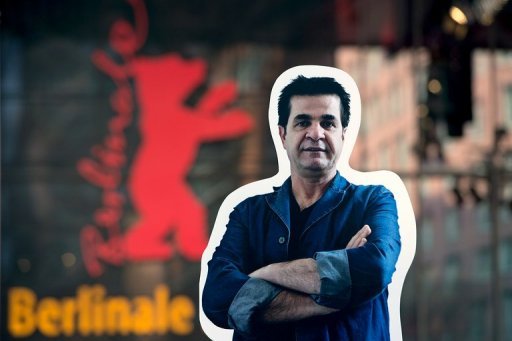The 63rd Berlinale premiered Tuesday the latest film by banned Iranian director Jafar Panahi, a haunting lament about crushing state oppression and a tribute to the resilience of the creative drive.
The older fugitive owns a dog, banned as pets because Islamic law deems the animals to be unclean, while the young woman, who soon proves suicidal, was caught attending an illicit party on the Caspian Sea.
They keep the drapes drawn to avoid detection by the authorities but while the man tries to keep working — on a film script, as it happens — she slips deeper into despair.
Panahi was detained for a documentary he tried to make on the unrest following the 2009 election and banned from making more films for 20 years. He was given a six-year jail sentence but currently remains under house arrest.
But the director, who has picked up a clutch of prizes at major international festivals for socially critical movies that are outlawed in Iran, has been feted abroad as one of the most original voices of the Iranian new wave.
Though he was prevented from coming to present the film in Berlin, Panahi appears on screen during the second half of the picture and it remains unclear whether the two fugitives are not just a figment of his imagination as the action moves from reality to fiction and back again.
The walls of the villa are covered with European versions of his own film posters including the 2000 picture “The Circle” which ends with a prison door slamming shut on a cell containing all the main female protagonists.
Partovi, who also plays the role of the man with the dog, said Panahi had been deeply depressed due to the official restrictions when they started working on the project, which he said was aimed at “bridging this hard period”.
Partovi said it was unclear what consequences the new picture, which got a mixed reception in Berlin, would have for them in Iran.
Maryam Moghadam, the lead actress, said her character represented Panahi’s desperation.
Panahi’s “This Is Not A Film” had to be smuggled out in a USB key hidden inside a cake to be screened at the Cannes film festival.
Cannes, Berlin and Venice invited him to sit on their juries in 2010 and 2011 but because he was barred from leaving the country, organisers left a symbolic empty chair for him to remind film-goers of his plight.
Panahi, who was born in 1960, was awarded in December the prestigious Sakharov human rights prize by the European Parliament — a move that enraged Iran and further strained relations with the Islamic republic.
German Chancellor Angela Merkel’s spokesman on Monday said Berlin had appealed to Tehran to allow Panahi to attend the festival and protesters outside the Berlinale cinema held up cardboard cutouts of the director demanding he be free to travel.
Panahi released a statement with the press materials for the film, saying the story served as a metaphor for his personal plight.
A gripping Iranian families drama, “A Separation” by Asghar Farhadi, won the Golden Bear in 2011 at a festival that has long spotlighted the country’s embattled directors.

COMMENTS
Please let us know if you're having issues with commenting.